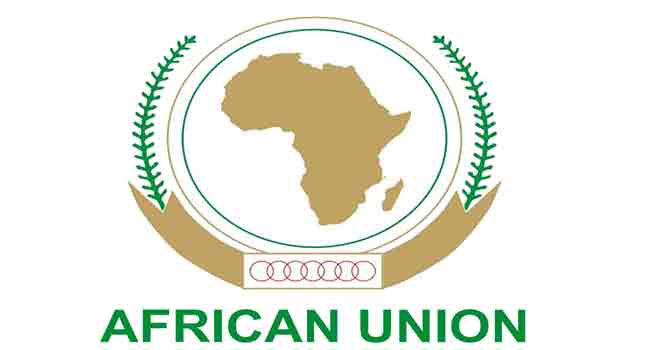Abuja — The African Union (AU) has declared that the continent requires over $3 trillion in climate financing to meet its environmental and development goals, warning that the current funding shortfall threatens Africa’s survival.
This comes as the AU prepares to host the Second Africa Climate Summit (ACS2) from September 8–10 in Addis Ababa, Ethiopia, under the theme: “Accelerating Global Climate Solutions: Financing for Africa’s Resilient and Green Development.”
Speaking ahead of the high-stakes summit, AU Commissioner for Agriculture, Rural Development, Blue Economy, and Sustainable Environment, Moses Vilakati, emphasized that despite contributing the least to global greenhouse gas emissions, Africa continues to suffer the worst effects of climate change due to its geographical vulnerability, limited resources, and weak adaptive capacity.
“Africa needs over $3 trillion to meet its climate goals, yet received only $30 billion between 2021 and 2022,” Vilakati said. “We must create a conducive environment for efficiency, adequacy, and justice in climate financing.”
He revealed that only 18% of the continent’s mitigation needs and 20% of adaptation financing are currently being met, highlighting the urgent need for bold international support.
Referencing Africa’s goal to triple renewable energy capacity to 300 GW by 2030, Vilakati urged stronger collaboration among governments, private investors, and global institutions. He noted that Africa holds the highest solar potential in the world, with vast regions receiving over 2,000 kWh/m² annually.
“Climate change, and what we do about it, will define our era, our continent, and the legacy we leave for future generations,” he said.
The AU also reaffirmed its commitment to rotating the summit’s host countries to ensure inclusivity across the continent.
Also speaking, Ethiopia’s State Minister for Planning and Development, Seyoum Mekonnen, described ACS2 as “Africa’s COP” — a platform to spotlight African-led climate solutions and demand fairer global climate financing.
“This summit is not just another event; it is Africa’s moment to lead,” Mekonnen said. “Africa is often portrayed as a victim of climate change, but we are also a continent of solutions.”
He pointed to Ethiopia’s own progress through the Green Legacy Initiative, which has seen over 40 billion trees planted in six years, increasing the nation’s forest cover from 17.2% in 2019 to 23.6% in 2023.
“We are not just hosting a summit—we are building a movement. And every movement needs voices that amplify, challenge, and inform,” he added.
The summit is being organized in collaboration with the African Union Commission (AUC) and is expected to push forward policies that embed climate risks into national development agendas, promote sustainable industries, and drive systemic reforms in the global financial architecture.
Abuja — The African Union (AU) has declared that the continent requires over $3 trillion in climate financing to meet its environmental and development goals, warning that the current funding shortfall threatens Africa’s survival.
This comes as the AU prepares to host the Second Africa Climate Summit (ACS2) from September 8–10 in Addis Ababa, Ethiopia, under the theme: “Accelerating Global Climate Solutions: Financing for Africa’s Resilient and Green Development.”
Speaking ahead of the high-stakes summit, AU Commissioner for Agriculture, Rural Development, Blue Economy, and Sustainable Environment, Moses Vilakati, emphasized that despite contributing the least to global greenhouse gas emissions, Africa continues to suffer the worst effects of climate change due to its geographical vulnerability, limited resources, and weak adaptive capacity.
“Africa needs over $3 trillion to meet its climate goals, yet received only $30 billion between 2021 and 2022,” Vilakati said. “We must create a conducive environment for efficiency, adequacy, and justice in climate financing.”
He revealed that only 18% of the continent’s mitigation needs and 20% of adaptation financing are currently being met, highlighting the urgent need for bold international support.
Referencing Africa’s goal to triple renewable energy capacity to 300 GW by 2030, Vilakati urged stronger collaboration among governments, private investors, and global institutions. He noted that Africa holds the highest solar potential in the world, with vast regions receiving over 2,000 kWh/m² annually.
“Climate change, and what we do about it, will define our era, our continent, and the legacy we leave for future generations,” he said.
The AU also reaffirmed its commitment to rotating the summit’s host countries to ensure inclusivity across the continent.
Also speaking, Ethiopia’s State Minister for Planning and Development, Seyoum Mekonnen, described ACS2 as “Africa’s COP” — a platform to spotlight African-led climate solutions and demand fairer global climate financing.
“This summit is not just another event; it is Africa’s moment to lead,” Mekonnen said. “Africa is often portrayed as a victim of climate change, but we are also a continent of solutions.”
He pointed to Ethiopia’s own progress through the Green Legacy Initiative, which has seen over 40 billion trees planted in six years, increasing the nation’s forest cover from 17.2% in 2019 to 23.6% in 2023.
“We are not just hosting a summit—we are building a movement. And every movement needs voices that amplify, challenge, and inform,” he added.
The summit is being organized in collaboration with the African Union Commission (AUC) and is expected to push forward policies that embed climate risks into national development agendas, promote sustainable industries, and drive systemic reforms in the global financial architecture.

Comments